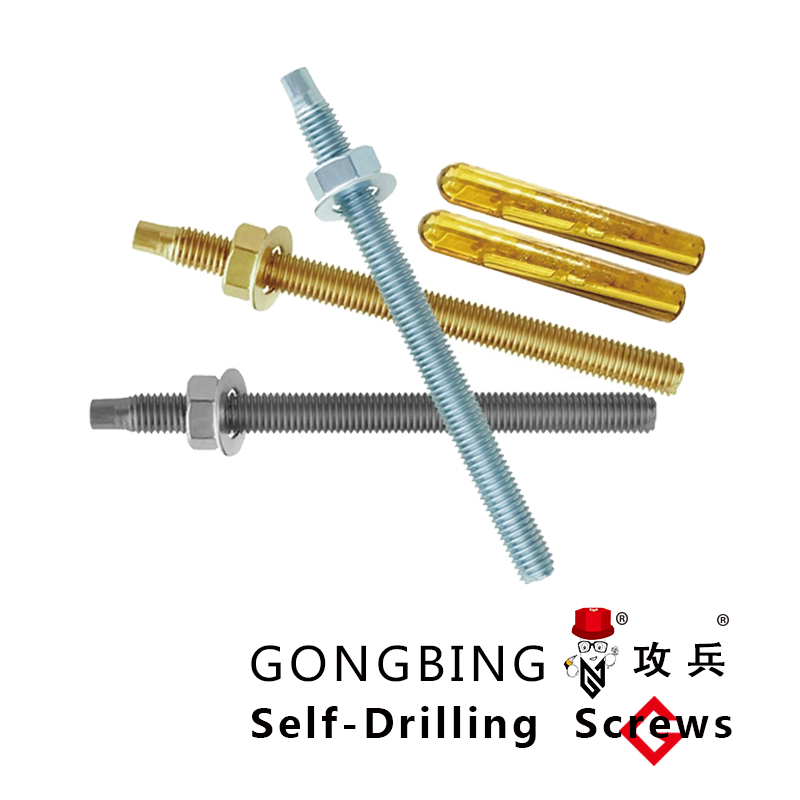Exploring the Benefits of Utilizing Chemical Anchors in Construction Projects
Using Chemical Anchors A Guide to Secure Bonding Solutions
In the world of construction and engineering, ensuring that materials are securely fastened is paramount. Whether it's in the construction of skyscrapers, bridges, or residential buildings, the load-bearing capabilities of anchors play a critical role in the structural integrity of projects. One solution gaining popularity is the use of chemical anchors. This article explores what chemical anchors are, how they work, and their applications in various industries.
What Are Chemical Anchors?
Chemical anchors, also known as adhesive anchors, are fastening solutions that use a chemical bonding agent to secure materials together. Typically composed of a resin, such as epoxy or polyester, these anchors are inserted into drilled holes within concrete or masonry walls. Once the resin is mixed and injected into the hole with a steel rod or bolt, it begins to cure, creating a strong bond as it hardens. The chemical reaction not only secures the bolt in place but also fills any voids in the surrounding material, enhancing load-bearing capacities.
How Do Chemical Anchors Work?
The effectiveness of chemical anchors relies heavily on the properties of the resin and the installation process. The two-part system usually consists of a resin and a hardener that, when combined, initiate a curing process. This process generates heat and gradually hardens the mixture, ultimately providing robust adhesion to the surrounding substrate.
When installing chemical anchors, several factors should be taken into consideration, such as the type of substrate, anchor diameter, and embedment depth. Proper preparation of the hole is critical; it should be clean and dust-free to ensure maximum adhesion. Additionally, knowing the load requirements and environmental conditions helps in selecting the right chemical anchor for the job.
Advantages of Chemical Anchors
using chemical anchors

Chemical anchors offer numerous advantages over traditional mechanical anchors. Firstly, they provide superior load capacities, making them ideal for heavy-duty applications. Their ability to bond with the surrounding material allows them to distribute loads more evenly, reducing the risk of failure.
Secondly, chemical anchors are highly resistant to environmental conditions such as moisture, temperature fluctuations, and chemical exposure. This makes them suitable for diverse applications, including outdoor structures and corrosive environments, where other types of anchors might fail.
Moreover, chemical anchors allow for flexible installation options. They can be used in situations where drilling might be challenging, such as in deep holes or confined spaces. Their versatility means they can be employed across various materials, including concrete, brick, and stone.
Applications of Chemical Anchors
Chemical anchors are widely used in different fields, including construction, civil engineering, and infrastructure maintenance. In construction, they can be found securing structural beams, fixtures, and equipment to concrete surfaces. In civil engineering, they are employed for stabilizing slopes, anchoring bridges, and securing railings.
In the realm of maintenance and repair, chemical anchors play a crucial role in restoring and reinforcing existing structures. For instance, they are often used in retrofitting projects where additional load-bearing capabilities are required.
Conclusion
Chemical anchors represent a significant advancement in fastening technology, providing strong, reliable solutions for a variety of construction and engineering needs. Their ability to bond effectively with various substrates, combined with their resilience to environmental factors, makes them an ideal choice for both new constructions and repairs. As the construction industry continues to evolve, the utilization of chemical anchors is set to grow, offering innovative solutions that enhance safety and longevity in structural applications.
-
Wedge Anchor Bolts: Secure Fastening Solutionsಸುದ್ದಿAug.05,2025
-
Insulation Fixings: Secure and Durable Solutionsಸುದ್ದಿAug.05,2025
-
Full Threaded Studs: Versatile Fastening Solutionsಸುದ್ದಿAug.05,2025
-
Expanding Fasteners: Secure and Reliable Solutionsಸುದ್ದಿAug.05,2025
-
Butterfly Toggle Anchors: Secure and Easy to Useಸುದ್ದಿAug.05,2025
-
Bracing Solutions for Steel Structuresಸುದ್ದಿAug.05,2025
